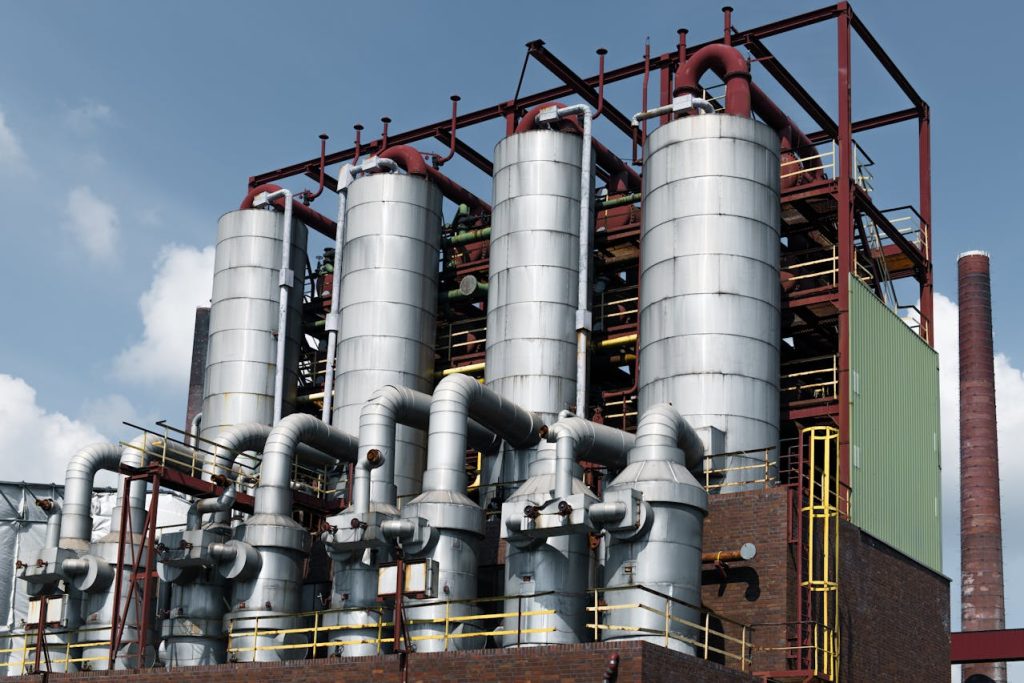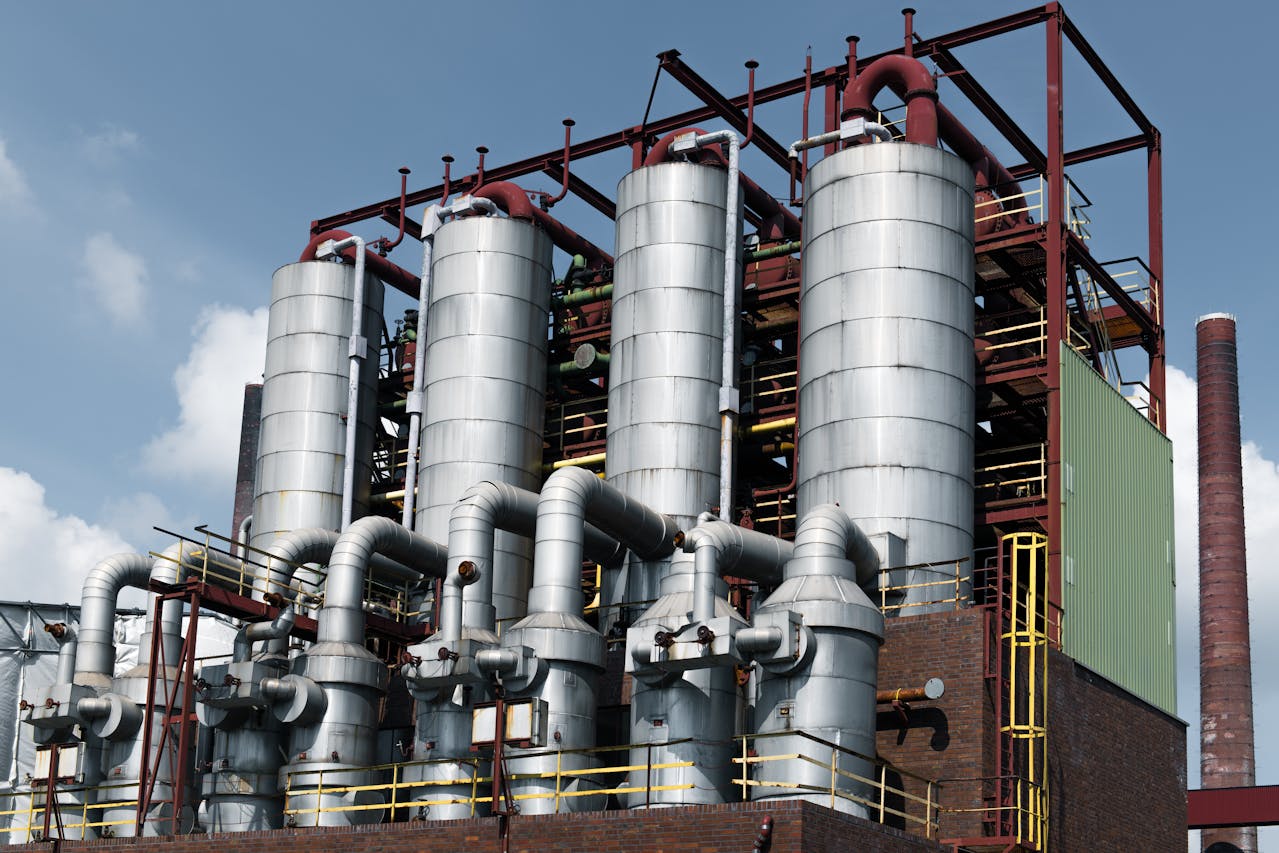In today’s energy-conscious industrial climate, steam generation isn’t just about heat, it’s about intelligent control, cost management, and operational reliability. As industries evolve, so does the need for smarter steam boilers that do more than just deliver pressure. These modern systems are built to adapt, analyze, and improve performance while reducing energy waste and downtime.
For manufacturers, food processors, and large-scale facilities, the shift to intelligent boiler systems is not just a trend, it’s a strategic move to stay competitive and sustainable.

The Shift from Traditional to Smart
Older boiler systems tend to follow outdated cycles with limited room for optimization. They’re heavy on fuel consumption and often react too late to shift in demand. Maintenance is mostly reactive, and safety checks rely heavily on manual inspections.
In contrast, smarter steam boilers operate with data-driven logic. They adjust in real-time based on load, fuel quality, and process demands. Integrated sensors monitor temperature, pressure, emissions, and feedwater quality, all feeding into central control panels or cloud platforms for remote access. The result? A system that constantly self-corrects and improves efficiency.
Efficiency Gains with Immediate Impact
One of the primary reasons industries are moving toward smart systems is the tangible cost savings. These boilers optimize fuel-air ratios, recycle waste heat, and adjust automatically to reduce energy loss during low-demand periods. This leads to fuel savings of up to 30%, often paying back the investment within two years.
What’s more, smarter boilers can adapt to different fuel types. This flexibility is especially valuable in environments where fuel prices fluctuate, or sustainability goals call for a gradual shift to biomass or hybrid fuel solutions.
Real-Time Monitoring Means Real-Time Advantage
With traditional systems, downtime often comes without warning. It takes hours to diagnose faults, and even longer to fix them. Smarter steam boilers eliminate this problem by giving operators real-time insights. Alerts, performance reports, and predictive maintenance data help teams act before issues escalate.
Remote monitoring also reduces the need for constant physical checks. Engineers can access system performance from offsite locations, making operations safer and more efficient. When systems run smoothly, production cycles stay consistent — a win for both cost and quality.
Safety Built into Every Function
Modern boilers prioritize safety as part of their design. Pressure relief systems, emergency shutoffs, and leak detection are now standard features, all of which operate automatically when thresholds are exceeded.
These features are not only critical for worker safety but also reduce insurance costs and regulatory risk. In industries where steam systems operate around the clock, automation adds a layer of reliability that manual checks can’t guarantee.
Smarter Boilers and Environmental Performance
Energy efficiency is directly tied to carbon output. Boilers that burn cleaner and consume less fuel contribute to better environmental performance. This matters not only for corporate responsibility but also for compliance with tightening emission standards.
Some smart systems come equipped with economizers, oxygen trim controls, and low NOx burners, all designed to cut greenhouse gas emissions without sacrificing performance. For organizations pursuing certifications or green labels, these upgrades offer both credibility and compliance.
Adaptability Across Sectors
Smarter steam boilers aren’t limited to one industry. Their ability to adapt to variable loads and fuel types makes them valuable across diverse sectors, from beverage production to chemical manufacturing. Whether in a large textile plant or a mid-sized packaging company, the benefits scale easily.
Because these boilers are modular, they can be configured to meet current needs and expanded later. This scalability reduces the risk of overinvestment while still future-proofing operations for growth or regulatory changes.
How We Deliver Results at Spenomatic Kenya Limited
At Spenomatic Kenya Limited, we understand that all client’s steam requirements are different. That’s why our approach to smarter steam boilers is hands-on and customized. From consultation to commissioning, we help you evaluate energy usage, assess return potential, and build a boiler system that fits your operational goals.
Our solutions integrate remote monitoring, fuel flexibility, and high-efficiency designs tailored for local conditions. We also support you with training, routine servicing, and ongoing optimization to ensure your boiler delivers peak performance every day.
Many of our clients have reduced fuel use and maintenance downtime significantly within the first year. With the right system in place, savings aren’t a future promise, they’re a daily reality.
Conclusion
Smart technology is redefining what steam boilers can do. They are no longer just tools for heating, they are central to managing costs, improving safety, and meeting sustainability goals. Industries that adopt smarter steam boilers are not just upgrading equipment; they’re investing in performance that lasts.
As pressure mounts to reduce emissions, cut fuel bills, and maintain high output, the need for smarter steam systems becomes more urgent. The good news is, the technology is already here, and with the right partner, the transition is both smooth and rewarding.
FAQs
1. What’s the difference between a traditional and a smart steam boiler?
A traditional boiler runs on fixed settings with limited automation, while a smart steam boiler uses sensors and real-time data to adjust performance, improving efficiency and safety.
2. Are smart boilers difficult to maintain?
Not at all. In fact, they’re easier to maintain thanks to built-in alerts, performance logs, and predictive maintenance features that help identify issues before they cause failures.
3. How soon can I see a return on investment?
Most businesses recover their investment in smart steam boilers within 18–24 months, primarily through reduced fuel costs and less downtime.
4. What types of smart boiler systems does Spenomatic Kenya Limited offer?
We offer modular, high-efficiency boilers with real-time monitoring, fuel-flexible designs, and full technical support for industries across East Africa.
5. How does Spenomatic ensure long-term performance?
Our team provides continuous system optimization, onsite training, and regular maintenance checks, ensuring your boiler stays efficient and reliable for years.

